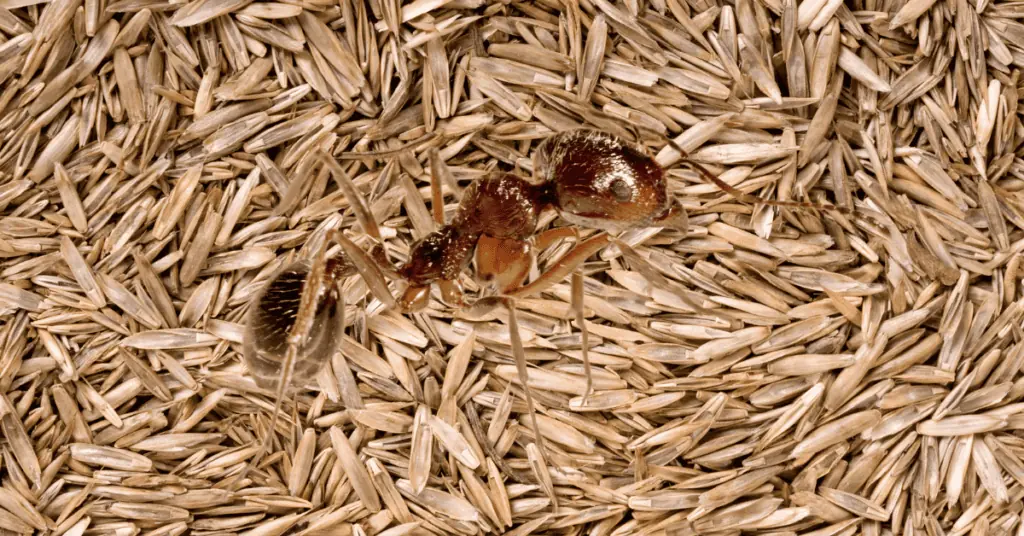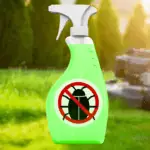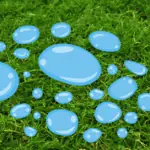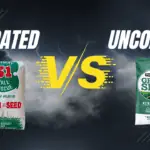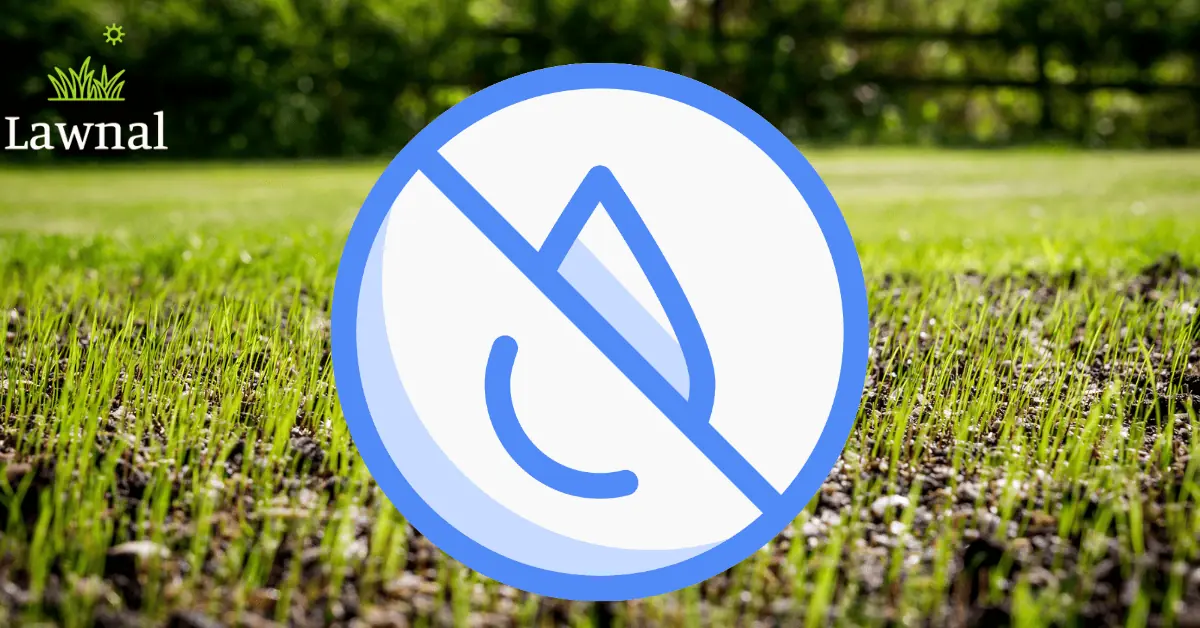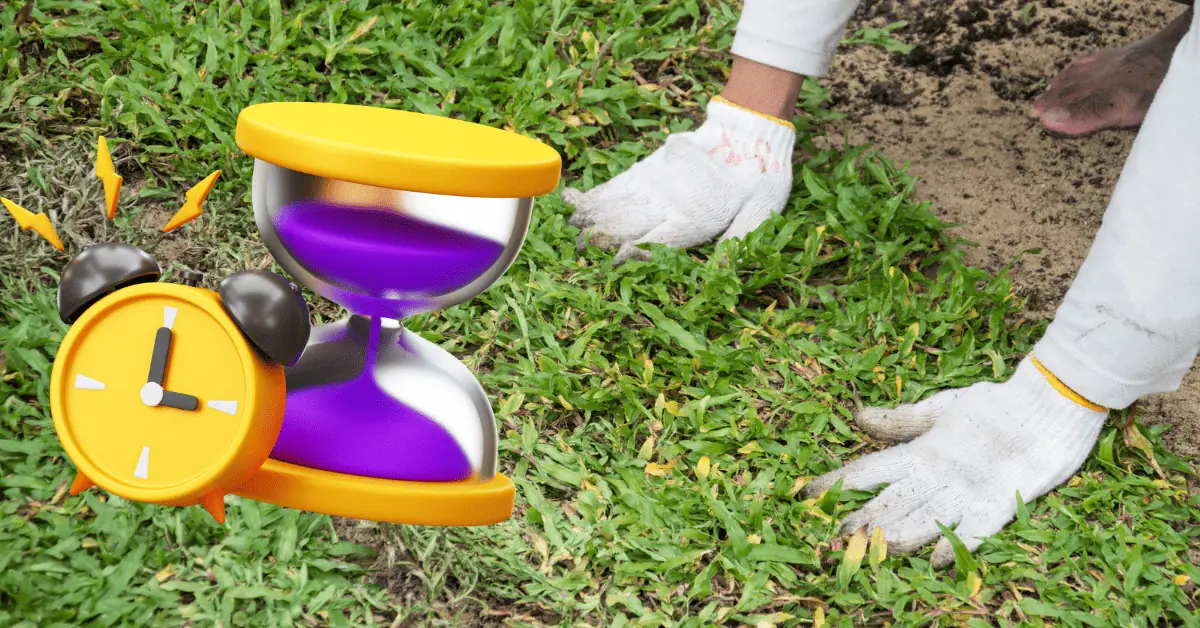Ants are fascinating creatures in almost any part of the world. They are peculiar for their incredible strength, organization, teamwork, and ability to forage for food. Furthermore, they can lift their body weight many times and build intricate underground colonies.
Ants are tiny creatures that can significantly impact your lawn’s health, particularly when it comes to grass seed. They eat various foods, including other insects, sugary substances, and plant matter, including grass seed. But have you ever wondered if ants eat grass seed?
While people don’t generally see them as a significant threat to grass, they can still cause some issues when they start to feed on the seeds. This article explores the relationship between ants and grass seeds and answers the question, do ants eat grass seeds?
Ants and Grass Seeds
Ants are social insects, with over 12000 species belonging to the family Formicidae. They are interesting, as they can thrive in almost any habitat.
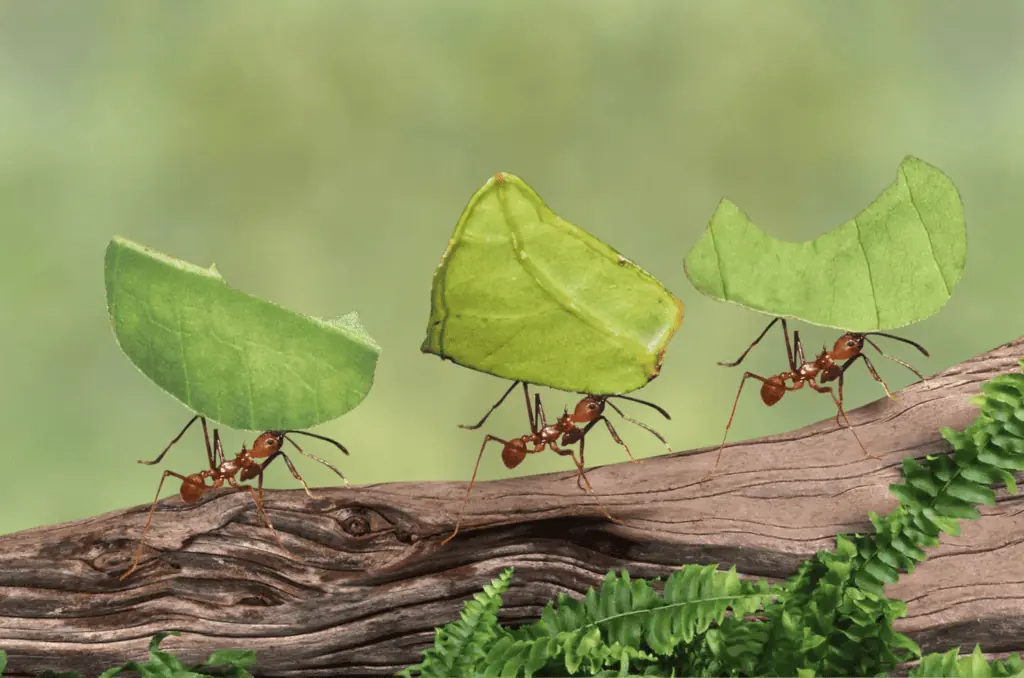
Furthermore, they are peculiar in their complex social structure and division of labor. Each ant has a specific role in the colony, from workers to soldiers to the queen. Grass seeds are the tiny, often overlooked, critical components of our lawns, parks, and green spaces. Without them, we wouldn’t have lush, green landscapes to enjoy.
Grass seeds are the reproductive structures of grass plants. They contain all the genetic material necessary to grow a new grass plant.
They come in various shapes, sizes, and colors, depending on the grass species. Some are tiny and light, like those of bentgrass, while others, like Kentucky bluegrass, are larger and heavier.
Grass seeds are an essential component of lawn care and landscaping. They get used to establishing new lawns or repairing damaged areas. The composition of each grass seed is in several parts: the seed coat, endosperm, and embryo. Furthermore, the seed coat is the outer layer that protects the inner parts of the seed from damage and dehydration.
The endosperm is the food source for the embryo, which is the future plant. However, the embryo contains the genetic material and structures necessary to develop into a mature grass plant.
Do Ants Eat Grass Seeds?
The answer is yes; ants feed on grass seed. It is normal to be surprised to learn that ants can eat grass seed, which can significantly impact your lawn’s health. Ants play an important role in seed dispersal.
When ants eat grass seeds, they carry them back to their colony, where they are stored or used as food. Ants can also transport grass seeds while foraging for other food.
But, the extent to which ants eat grass seed is unclear. Some studies suggest that ants may consume only a small percentage of the grass seed. Other studies show that ants can reduce grass seed germination rates by consuming large seeds.
What Attracts Ants to Grass Seeds?
Ants get attracted to grass seed because it contains nutrients and moisture that they need to survive. When they find a source of grass seed, they will collect it and take it back to their colony.
The problem is that they will often collect more than they need, which can result in large quantities of seed being consumed.
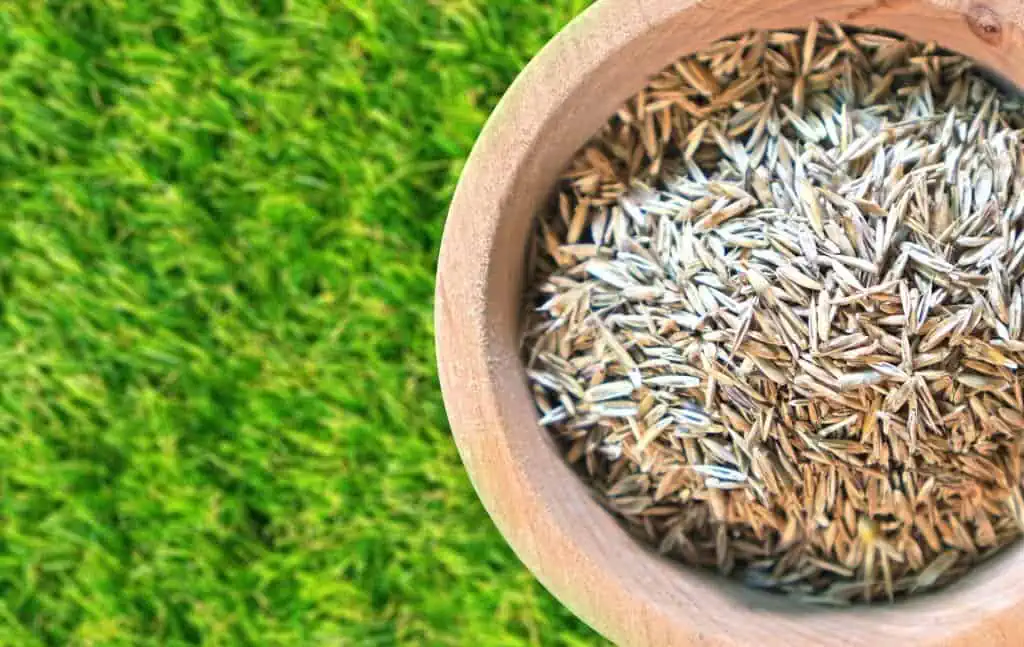
The Relationship Between Ants and Grass Seed
Several factors form a relationship between ants and grass seeds. Some of them include:
Grass Seed Distribution
One of the primary concerns with ants and grass seeds is their effect on seed distribution. As ants move through the soil, they can carry the grass seeds, depositing them in different lawn areas.
This process can result in uneven grass growth and thin patches in some lawn areas. Additionally, you may find ants near the soil’s surface, exposing the grass seeds to drying out, making it challenging for them to germinate.
Grass Seed Damage
Another relationship between ants and grass seeds is the damage they can cause to the seed itself. Ants can damage the seed coat, making it more difficult for the seed to germinate. This damage can lead to poor grass growth and patchy areas in the lawn.
The Negative Impact of Ants Eating Grass Seeds
Ants are fascinating insects that play an essential role in our ecosystem. They help to aerate the soil, control pests, and distribute seeds. But, they can cause extreme damage when they consume large quantities of grass seed.
This consumption can cause harm to your lawn, and it’s important to understand why this happens and how you can prevent it. However, the impact of ants eating grass seed depends on the extent of their consumption.
In small quantities, ants benefit grass growth by helping to disperse seeds. But, in large amounts, ants can reduce grass seed germination rates. This quantity can be detrimental to lawn establishment and repair.
Affects Lawn Growth
The prominent harm caused by ants consuming large quantities of grass seed is that it can prevent your lawn from growing well. When ants consume the seed, fewer seeds will be available to germinate and grow into healthy grass plants.
This process can lead to patchy bare lawn areas or thin grass coverage. In severe situations, it can cause the death of your grass plants.
Attracts Other Pest
Another issue with ants consuming grass seed is that it can attract other pests. Ants produce a sweet, sticky substance called honeydew that attracts other insects like aphids and scale insects. These pests destroy your lawn by consuming grass plants or by spreading diseases.
How to Protect Grass Seeds From Ants
If you want to protect your grass seeds from ants, there are several things you can do.
Applying Insecticide or Ant Bait
You can also take steps to discourage ants from collecting grass seeds. One way to do this is by applying an insecticide or ant bait around the perimeter of your lawn. These products can effectively reduce ant populations and prevent them from accessing grass seed.
Proper Lawn Maintenance
The first step is ensuring your lawn is healthy and well-maintained. This step means watering and fertilizing your lawn, mowing it at the right height, and removing any thatch or debris that may be present.
Use Less Appealing Grass Varieties
Another option is to use grass varieties that are less appealing to ants. For example, some grass varieties are resistant to pests, making them less likely to get targeted by ants.
Use of Natural Remedies
One natural method is to sprinkle cinnamon or diatomaceous earth around the area where you are planting grass seeds. These substances act as a barrier to prevent ants from accessing the seed.
Conclusion
Ants do eat grass seed, but the extent of their consumption varies. While ants can help disperse seeds, they can also reduce seed germination rates if they consume large quantities.
You can use several natural and chemical methods to protect your grass seed from ants. Controlling ant populations ensures your grass seed has the perfect chance of developing into a healthy lawn.
